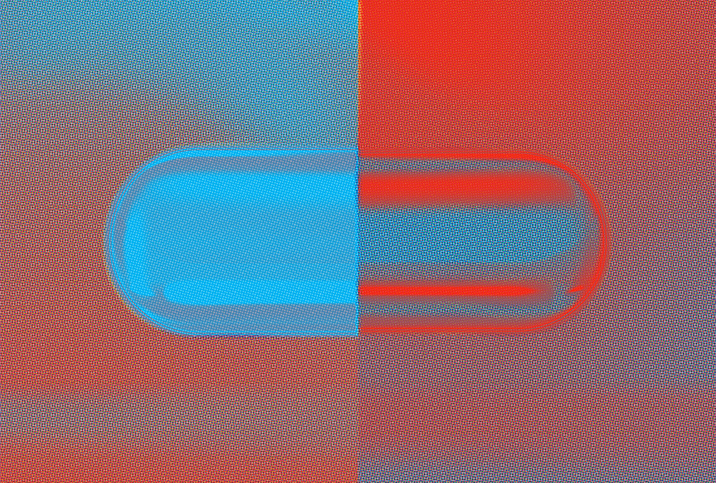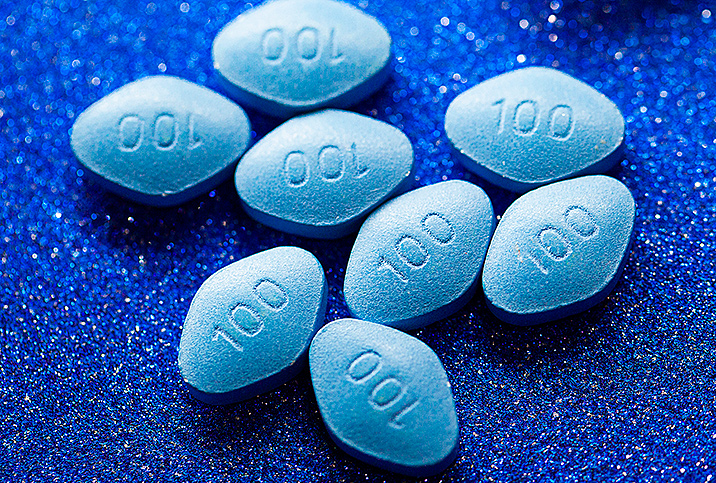Do You Know the Side Effects of the ED Drug You're Considering?

Erectile dysfunction (ED) is relatively common, affecting about 30 million men in the United States, according to the National Institute of Diabetes and Digestive and Kidney Diseases.
Everyone likely deals with sexual performance issues from time to time, but if ED becomes the norm, you should talk to your doctor. After making sure your ED isn't a sign of heart problems or other health issues, your doctor will likely talk to you about treatment options. Oral medication is usually among the first choices for treating ED, according to the Mayo Clinic, but it's useful to know the pros and cons of any medication before trying it.
How ED medications work
ED can be a significant source of stress, lowered self-esteem and strain on a relationship. While it may be tempting to think that all of these problems can be addressed by taking a pill, this treatment begs the question: How exactly do oral medications treat ED?
In general, they reverse ED by enhancing the effects of a naturally produced chemical in the body called nitric oxide, which relaxes the muscles that allow blood flow into the penis, making it possible for you to get and maintain an erection once you're sexually aroused.
Several ED drugs are on the market, and while all of them have the same general effect, each one works slightly differently and requires its unique considerations.
Here are some factors to consider for each of the most popular erectile dysfunction medications:
- Sildenafil (Viagra). This medication remains effective for four to five hours or more in patients with mild to moderate erectile dysfunction. To maximize its effectiveness, the medication should be taken on an empty stomach about an hour before sex.
- Tadalafil (Cialis). For the greatest effect, this medication should be taken at least half an hour before sex. Tadalafil can be taken with or without food and will remain effective for up to 36 hours.
- Vardenafil (Levitra, Staxyn). This medication can be taken with or without food about an hour before sex, though eating a high-fat meal may slow down the body's ability to absorb the medication as quickly, according to the Mayo Clinic.
- Avanafil (Stendra). Individuals can take this medication with or without food about 30 minutes before sex. The medication can remain effective for up to six hours.
If you're considering going on medication for ED, talk to your doctor about the benefits and risks of each medication before choosing the one that's right for you.
Potential side effects and complications
ED drugs, just like any other medication, carry the potential of side effects and complications. Side effects may include headaches, indigestion, flushing, congestion, runny nose or back pain. Some people may experience changes to their vision, such as light sensitivity, blurred vision or seeing a blue hue in everything. Rare side effects include sudden hearing or vision loss or an erection that won't go away and lasts for hours, also known as priapism. If you experience any of these side effects, you should talk to your doctor right away.
It's important to take ED medication only when it's prescribed by a doctor familiar with your medical history and overall health because the drugs can be dangerous for people with certain medical conditions and cause adverse interactions with other medications.
According to medical experts, it's not safe for people with low or high blood pressure or severe liver disease to take oral ED medications. It may also be dangerous to take these drugs if you are on dialysis due to kidney disease or taking other nitrate drugs, particularly those prescribed for chest pain, such as nitroglycerin (Nitro-Dur, Nitrostat), isosorbide mononitrate (Monoket) and isosorbide dinitrate (Dilatrate-SR, Isordil).
Another treatment method that alleviates the need for drugs is a wearable constriction or vacuum device. Some medical-grade wearables such as Eddie by GiddyⓇ are proven effective in maintaining erections, without the side effects of ED medications.
Deciding what's right for you
If you're struggling with ED, remember you are not alone and ED is, thankfully, a treatable condition. Whether you're considering oral medication or alternative treatments such as medical devices, be sure to talk to your doctor about the risks and benefits to decide what's right for you.
Giddy urologist Dr. Edwin Morales explains the different kinds of ED treatments in the ED Guide video series. Click here to watch the video.


















